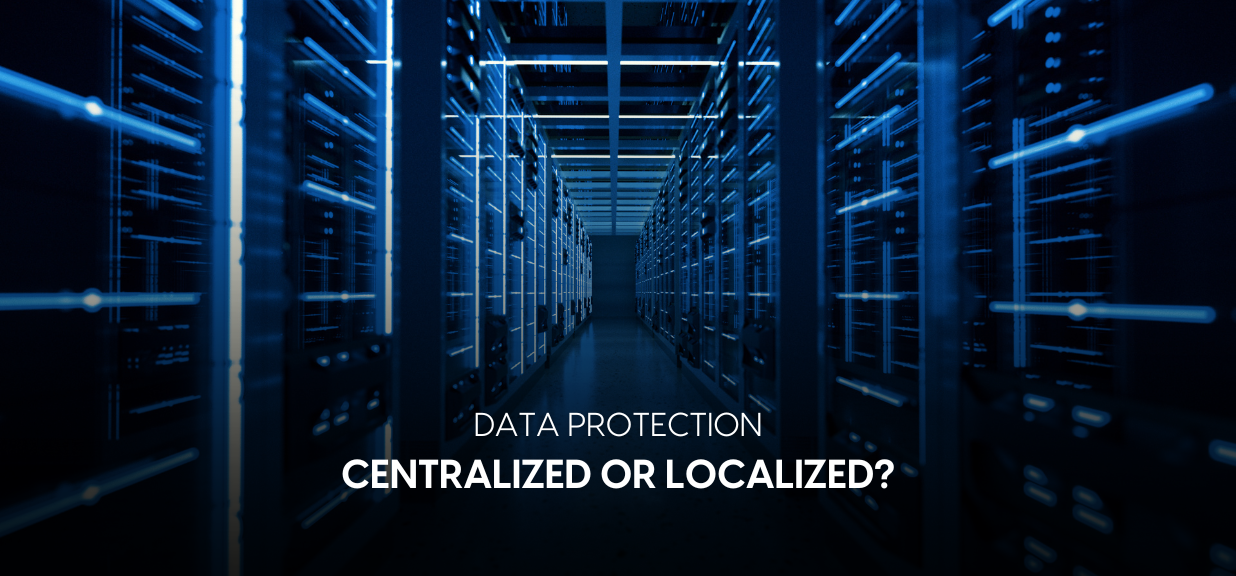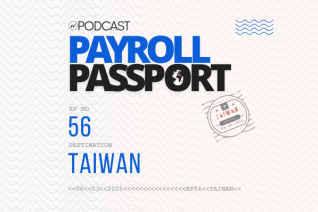Global Data Protection: Centralized Security vs Local Data Sovereignty

In 2023, the average cost of a data breach reached an all-time high of $4.45 million, according to IBM's annual Cost of a Data Breach Report. As businesses navigate an increasingly complex regulatory landscape, the need for robust data protection measures has become paramount.
Regulations like the General Data Protection Regulation (GDPR) in the European Union and the California Consumer Privacy Act (CCPA) in the United States have set standards for data handling and privacy. GDPR, for instance, requires data localization within the EU, posing challenges for multinational companies. China's data sovereignty laws further compound the complexities, mandating that data pertaining to Chinese citizens or generated within the country's borders be stored locally.
With digitization driving data proliferation, organizations must implement stringent safeguards to protect this valuable asset against unauthorized access, theft, or misuse in today's interconnected world.
This blog explores the ongoing debate between centralized security and local data sovereignty, two contrasting approaches to data protection. We will delve into the advantages and challenges of each method and examine potential strategies for striking a balance that ensures comprehensive data security while respecting local regulations and user privacy.
Understanding Centralized Security
Centralized security refers to a data protection model where an organization's data is stored and managed in a centralized location, typically a secure data center or cloud environment.
This approach offers several benefits, including:
Consistency and Standardization: With a centralized security system, organizations can implement uniform security measures, policies, and protocols across their entire data infrastructure. This consistency ensures that data is protected according to the highest standards, regardless of its geographic location or the specific business unit handling it.
Efficiency: Centralized security can be more cost-effective and resource-efficient than maintaining multiple local data centers. By consolidating data storage and security operations, organizations can streamline their IT infrastructure, reduce redundancies, and optimize resource allocation.
Simplified Compliance Management: Many data protection regulations, such as the General Data Protection Regulation (GDPR) and the California Consumer Privacy Act (CCPA), have strict data handling and security requirements. A centralized approach can simplify the process of ensuring compliance by implementing a single set of policies and procedures across the organization.
Enhanced Monitoring and Analytics: With a centralized security system, organizations can leverage advanced monitoring and analytics tools to detect and respond to potential security threats more effectively. Unified monitoring enables comprehensive visibility into the organization's data infrastructure, facilitating real-time threat detection and efficient incident response.
Challenges:
Single Point of Failure: While centralization offers numerous benefits, it also introduces a single point of failure. If the centralized system is compromised or experiences an outage, the entire organization's data could be at risk.
Scalability Issues: As an organization's data volumes grow, scaling a centralized system can become challenging, potentially leading to performance bottlenecks or increased costs.
Jurisdictional Conflicts: Organizations with a global presence may face legal challenges when storing data in a centralized location due to varying data protection laws and regulations across different jurisdictions.
ALSO READ: Protecting Paychecks: Importance of cybersecurity in payroll
Understanding Local Data Sovereignty
Local data sovereignty, also known as data localization, refers to the practice of storing and processing data within the geographic boundaries of a specific region or country. Legal requirements, cultural preferences, or a desire for greater control over sensitive data often drive this approach. The advantages of local data sovereignty include:
Compliance with Local Regulations: By storing data within a specific jurisdiction, organizations can ensure compliance with local data protection laws and regulations, avoiding potential legal penalties or reputational damage
Reduced Latency: Local data storage can improve application performance and reduce latency, particularly for data-intensive operations or real-time applications that require low-latency data access.
Increased Trust: Customers and stakeholders may feel more confident entrusting their data to organizations that store and process it within their local jurisdiction, as it aligns with their data privacy and sovereignty experiences.
Challenges:
Complexity in Management: Maintaining multiple local data centers can be logistically complex and resource-intensive, requiring organizations to manage disparate systems, policies, and personnel across different geographic locations.
Inconsistent Security Postures: With data stored in various locations, it can be challenging to maintain consistent security standards and protocols across all data centers, potentially introducing vulnerabilities or compliance risks.
Higher Costs: Establishing and maintaining local data centers can be more expensive than centralized storage, particularly for organizations with a global footprint, as they must replicate infrastructure and resources in multiple regions
Finding a Balance
As organizations navigate the complexities of data protection, many are exploring hybrid models that combine the benefits of centralized security and local data sovereignty. These approaches aim to strike a balance between data security, regulatory compliance, and operational efficiency:
Key considerations for organizations: When choosing a data protection approach, organizations should evaluate factors like organization size and geographic footprint, industry-specific regulations, data sensitivity levels, and the need to balance data sovereignty with operational efficiency. Large multinational corporations with a global presence may need to navigate more complex regulatory landscapes than smaller, locally based firms. Industries like healthcare, finance, and government face stringent data protection mandates. The sensitivity of data handled, such as personally identifiable information or intellectual property, influences protection requirements. Ultimately, organizations must strike a balance between robust data security, regulatory compliance, and maintaining business continuity through seamless cross-border data access and sharing.
ALSO READ: Essential Data Security Measures for Global Payroll
Hybrid Models: Hybrid models involve a combination of centralized and localized data storage and processing. Organizations may store certain types of data (e.g., sensitive customer information) locally to comply with regulations while leveraging centralized systems for non-sensitive data or global operations.
Federated Security Architectures: Federated security architectures allow organizations to maintain control over their data while benefiting from shared security resources and expertise. In this model, individual entities maintain sovereignty over their data but participate in a collaborative security framework that leverages centralized threat intelligence, incident response, and security operations.
Data Localization Policies: Organizations can develop data localization policies that dictate which types of data should be stored locally based on regulatory requirements, sensitivity levels, or business needs. These policies can help organizations prioritize data sovereignty while maintaining operational efficiency.
Advanced Encryption and Access Controls: Robust encryption and granular access controls can enhance data security and privacy regardless of the data's storage location. These measures can help organizations protect sensitive data while complying with data protection regulations.
DOWNLOAD | The Payroll Revolution: Success Stories, Strategies, and the Future of Efficiency
Neeyamo: Balancing Data Security and Sovereignty Across Borders
Is your company struggling to maintain data security while adhering to the complex web of data laws across different countries? Navigating data security and local data laws can be a daunting task, particularly for companies entrusted with sensitive employee information such as payroll records.
At Neeyamo, we are not just aware of these challenges, we are experts in them. Our triangulated compliance framework and robust Glocal solutions seamlessly blend central security with local data rules. With advanced encryption, access controls, and shared security setups, we ensure the safety of your payroll data while fully respecting data laws in each region.
Neeyamo's native payroll engines in 100+ countries and single payroll platform ensure the security of your employee data, allowing you to concentrate on your business operations with peace of mind.
Contact us at irene.jones@neeyamo.com to learn more about how Neeyamo can fortify your payroll security while adhering to data sovereignty rules.
Latest Resources
Stay informed with latest updates
If you're curious and have a thirst for knowledge pertaining to the HR, payroll, and EOR universe, don't miss out on subscribing to our resources.














